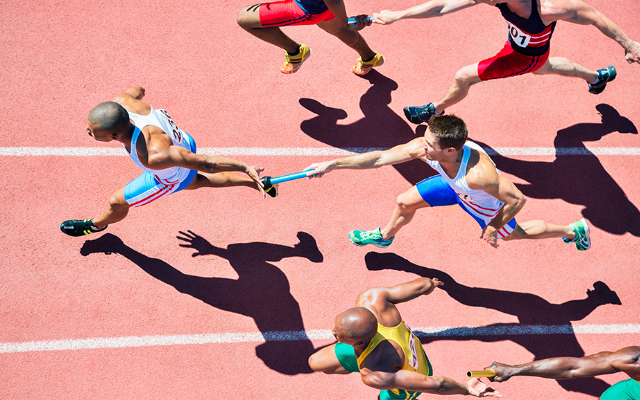
Competitive sport is an emotion-packed environment. Athletes are continually under stress, physiological no doubt, but equally importantly psychological, that has severe consequences for emotional and mental well-being. Often, mental health issues go unnoticed, unaddressed, untreated and unfelt. Athletes sometimes harbour negative emotions, anxiety, depression, grief, anger, fear, suicidal thoughts, etc, for long enough to have crossed the Rubicon, leaving them with permanent scars that irreversibly affect their professional careers, even lives.
The struggle is real, even if athletes don’t show it or talk about it. Some even try to ‘fake it’, as if all is well, when a tempest may well be brewing inside. The heroics and courage of sports stars with celebrity status, such as the likes of Olympic champions Michael Phelps, Ryan Lochte, Noah Lyles, and many others, who have come out in the open to frankly discuss their mental health struggles, have certainly generated some social awareness.
Internationally acclaimed cricket stars like Virat Kohli, Glenn Maxwell, Johnathan Trott and Ben Stokes have revealed their struggles. Praveen Kumar, Robin Uthappa, Mohammad Shami and others from other sports have admitted to contemplating suicide as a way out of their struggles.
Their coming out in the public is certainly a step in the right direction, wherein the threshold of social acceptance and awareness of issues surrounding mental health has been lowered. They have professed ‘If you feel something, share something’. We need to create an environment in which talking about mental health issues is socially acceptable and is a norm. But while social acceptance and remedies are necessary, it is not sufficient.
To achieve optimal performance, athletes must learn to recognise not only their own emotions and ideal performance states to control their personal levels of energy, but also need to be aware of the feelings of their teammates, coaching staff, opponents, officials, family, fans, administrators and others. They have to be able to communicate and work together. So, while emotional well-being matters for the self on one hand, it also contributes to maintaining healthy social relationships and interpersonal interactions on the other, contributing toward heightened performance.
For the Latest Sports News: Click Here

Athletes need meta-emotional beliefs in how their emotions, for self and when around others, would influence performance. How to build this belief? Enter emotional intelligence (EI). Defined as the ability to perceive, express, use and assimilate emotion in thought, understand and reason with it, and be able to modify and regulate it in the self and others, it captures the gross psychological aptitudes (GPA) in individuals.
The best part is that EI levels can be elevated. This can be achieved through athletes undergoing therapeutic stress management, contemplative meditation, instilling a sense of self-esteem, optimism and happiness, learning techniques for self-motivation, self-control, adaptability and managing relationship with others, providing frequent rest and time for introspection.
Not limited to individual sports alone, emotionally intelligent are effective in understanding the emotional states of their teammates, regulating their own emotions to match those of others, helping team-members who may be feeling ‘low’, and perceiving emotional issues in others around them. With collective EI training and development, an entire team can reach a harmonised state of emotional well-being — a state where players are in a similar frame of mind before or during a competition.
Regulation of emotions is important even after positive outcomes. Imagine four years, sometimes even more, of excruciatingly hard work culminating in an Olympic medal. One has achieved the highest prizes of all and then, one is emotionally void and unsure of what is next. EI facilitates the regulation of emotions even after positive sports outcomes and facilitates mastering the art of restarts.
Combined, athletes’ GPAs must routinely be evaluated, and EI levels calibrated. Mental and physical well-being must be seen in the same light, with periodic evaluation of EI becoming a standard protocol, creating an environment where there is no shame or stigma in reporting mental angst or getting it monitored or evaluated.
A physically fit body is complemented with an equally fit mind, enabling the body to achieve what the mind believes. We need to create that belief.
Author Designation and Affiliation:
Saurav Pathak, Clinical Associate Professor of innovation, entrepreneurship and strategy
Raymond A. Mason School of Business
College of William & Mary, Williamsburg, Virginia, USA.
Email: sauravicbs@gmail.com
LinkedIn Profile: https://www.linkedin.com/in/saurav-pathak-5b60bb2a4/
Also Read: US cricket is rolling; has it gathered mass?




